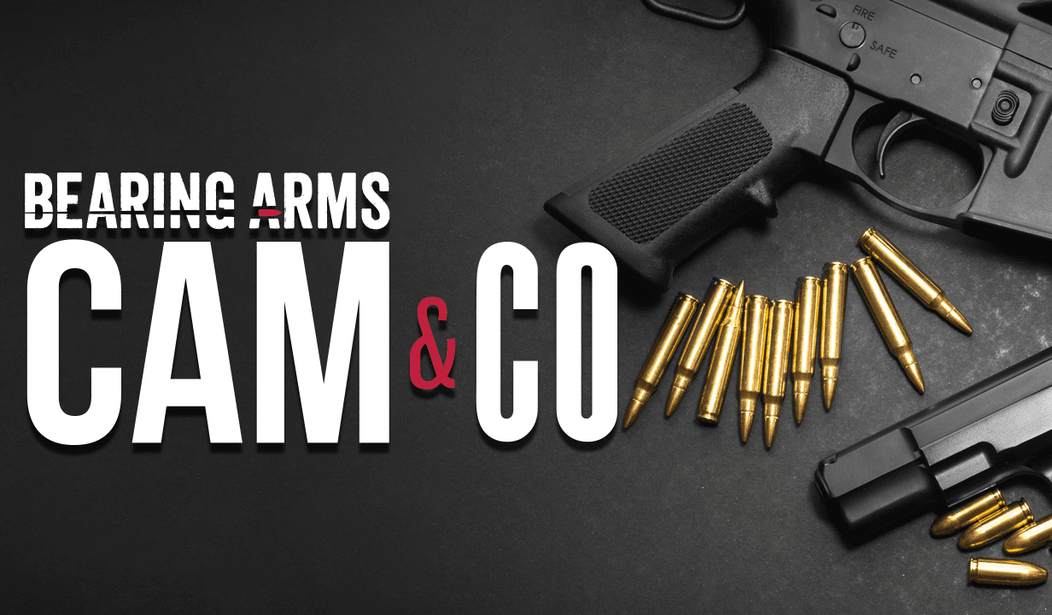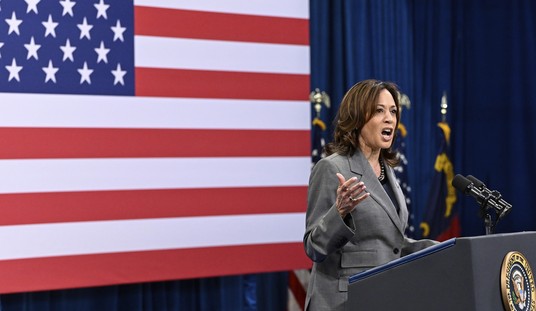Illinois’ new “Firearms Industry Responsibility Act” isn’t just an attack on our right to keep and bear arms. It’s an assault on our freedom of speech as well. On today’s Bearing Arms’ Cam & Co Mark Oliva of the National Shooting Sports Foundation sits down with me to discuss the group’s newly-filed lawsuit challenging HB 218, as well as the impending ATF rule on private sales and transfers of firearms.
The NSSF’s lawsuit, filed in the U.S. District Court for Southern Illinois, challenges the validity of Illinois’ new gun control law on multiple counts, starting with the argument that HB 218 is preempted by the Protection of Lawful Commerce Act. But the NSSF is also raising a First Amendment challenge, asserting that the law discriminates against speech based on its content or viewpoint and arguing that such discrimination should be subject to strict scrutiny by the courts.
The topics and views that Illinois has singled out in HB 218 do not fall into any “well-defined and narrowly limited classes of speech” unprotected by the First Amendment. To be sure, the First Amendment does not preclude imposing liability for false, deceptive, or otherwise “misleading” commercial speech.
But HB 218 does not even purport to target only speech that is false or misleading. It authorizes the imposition of liability for speech about a product—a product expressly protected by the Constitution, no less— even when that speech is truthful and not misleading. Indeed, the words “false,” “misleading,” and “deceptive” appear nowhere in the relevant provisions. A manufacturer that places online advertisements containing entirely accurate specifications of its products and subsequently sells that product to a distributor, could be liable under HB 218, even if that product is fully lawful in every state in which it is sold, if a Illinois court later deems the product to have been marketed (1) in a way that “contribute[d] to a condition in Illinois that endangers the safety or health of the public,” or (2) encouraged non-servicemembers to use it for “a military-related purpose”.
“They’re trying to squelch the First Amendment rights of firearm manufacturers and retailers,” Oliva explained to me. “If they can eliminate the discussion of safe and responsible firearm ownership to the next generation, they can diminish the desire for ownership and people exercising their Second Amendment rights. So they’re trying to play the long game of eliminating the Second Amendment by eliminating and curtailing the First Amendment. And it’s important to remember that commercial speech is protected by the First Amendment. It is a right for these companies to be able to advertise a constitutionally-protected product.”
In its suit, the NSSF says that the speech code established by HB 218 is so vague that it’s “virtually impossible for regulated parties to tell what speech is and is not permitted, leaving them with no realistic choice but to err on the side of refraining from exercising their First Amendment rights.”
By its terms, HB 218 renders unlawful any marketing of a firearm-related product that “create[s], maintain[s], or contribute[s] to a condition in Illinois that endangers the safety or health of the public” if it is deemed “unreasonable under all circumstances.” This restriction “will provoke uncertainty among speakers,” as such indeterminable and subjective abstractions do not articulate at all—let alone articulate with “narrow specificity”—what kind(s) of speech may later be deemed to have unreasonably contributed to a “condition … that endangers the safety or health of the public.”
Those restrictions are problematic enough, but HB 218 further prohibits marketing “in a manner that reasonably appears to support, recommend, or encourage individuals” who are not in the military “to use a firearm-related product for a military-related purpose.” The problem with this broad prohibition is that Illinois provides no guidance on what qualifies as a “military-related” purpose, leaving industry members to guess whether their marketing materials will later be deemed unlawful.
HB 218 goes on, moreover, to prohibit an industry member from “advertis[ing], market[ing], promot[ing], design[ing], or sell[ing] any firearm related product in a manner that reasonably appears to support, recommend, or encourage persons under 18 years of age to unlawfully purchase or possess or use a firearm-related product.” A state of course may prohibit speech directly concerning unlawful conduct. But, unless this provision covers nothing more than advertisements that tell minors to buy guns (despite being minors), it is not at all clear what it means. Does any advertisement that shows minors lawfully using firearms (e.g., with a parent while hunting, or at a Boy Scouts shooting event) fall on the wrong side of the line? What about marketing in a way targeted toward young men, who share many characteristics with those just a few years younger—but are lawfully able to purchase firearms (and serve in the armed forces)? The questions vastly outnumber the answers. And while no statute must preempt all potential complications, when it comes to a prohibition on speech, the lack of clarity is destined to create a massive chilling problem.
If HB 218 is so narrow that it only prohibits advertisements that entice juveniles into breaking the law, then this particular provision is never going to come into play in practice. If, on the other hand, the bill is written broadly enough to target manufacturers like Wee1 Tactical and its JR-15 rimfire rifle, then it’s going to make it virtually impossible to not only market but produce firearms designed for youth shooting. As Oliva says, that’s nothing more than abridging the First Amendment rights of gun makers to curb the Second Amendment rights of gun owners, and a sign of the contempt that Illinois lawmakers have for all of our individual rights.
Check out the entire conversation with Mark Oliva in the video window below, including his initial thoughts on the yet-to-be-introduced ATF rule that seeks to impose a near-universal background check system on gun sales and the dangers it poses to lawful gun owners across the country. Be sure to tune in tomorrow as well, when we’ll be talking with Jim Wallace of the Gun Owners Action League about how gun owners are pushing back on the “Lawful Citizens Imprisonment Act” and what’s happening behind the scenes at the statehouse in Boston.









Join the conversation as a VIP Member